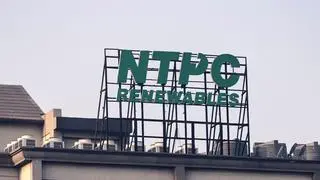Finance Ministry tightened the rules with the overarching aim of bolstering transparency and fostering corruption-free governance.
Not filing the annual immovable property return can now have significant consequences for officers in Central Public Sector Enterprises (CPSEs)potentially leading to denial of service confirmation or hindering post-retirement employment opportunities.
These stringent new stipulations are part of the revised vigilance guidelines issued by the Department of Public Enterprises (DPE) under the Finance Ministry, with the overarching aim of bolstering transparency and fostering corruption-free governance.
“Vigilance clearance shall be denied to an officer if he fails to submit his annual immovable property return of the previous year, latest by 31st January of the following year,” states the set of revised guidelines from the DPE.
The new guidelines specifically delineate the areas where such denial will have an impact, moving away from the previous discretionary approval or denial of vigilance clearance, and expanding the scope of situations requiring it.
Vigilance clearance will now be mandatory for a wider range of activities, including ex-India study leave, any deputation requiring clearance and its extension, appointments to sensitive posts, assignments to training programmes (excluding mandatory training), confirmation in service, retirement on Voluntary Retirement Scheme (VRS) / Voluntary Separation Scheme (VSS), post-retirement commercial employment, or pre-mature (voluntary) repatriation from any deputation. In all these instances, “the vigilance status may be placed before and considered by the Competent Authority before a decision is taken,” the guidelines specify.
As of March 31, 2024, there are a total of 448 CPSEs in India, comprising 272 operating, 64 under construction, 40 created under TBCB guidelines by the Ministry of Power and held for bidding and held as Under Construction till transfer, and 72 under closure/liquidation/non-operating. To date, these CPSEs have collectively employed over 8 lakh regular employees. Notably, over 3.35 lakh of these were in managerial or supervisory positions, serving as key personnel in decision-making processes, including procurement. According to the annual Public Enterprises Survey for 2023-24, total procurement during that year exceeded ₹5.30 lakh crore.
Officials have indicated that despite strict existing rules and regulations governing procurement, allegations of misconduct by officials in contract awarding have led to vigilance investigations. They also highlighted that vigilance guidelines are regularly updated to enhance the effectiveness of the entire process. Each CPSE is mandated to have a Chief Vigilance Officer (CVO) to head its vigilance department. CVOs are typically appointed from officers of the All-India Services, Government of India, or even from eligible officers within CPSEs themselves.
The new guidelines have also retained the existing scrutiny norms for annual property returns. The vigilance departments within CPSEs are now required to scrutinise approximately 20 per cent of the annual property returns of their regular permanent employees on a random basis and based on specific information.
This ensures that the scrutiny cycle is completed every five years. Furthermore, the guidelines explicitly discourage the practice of CPSEs sending gifts to government servants, deeming it unnecessary and potentially embarrassing, placing recipients in a dilemma. Gifts should only be provided to promote commercial/business interests and are not intended for government officials who are merely performing their duties.
More Like This
Published on July 27, 2025



















